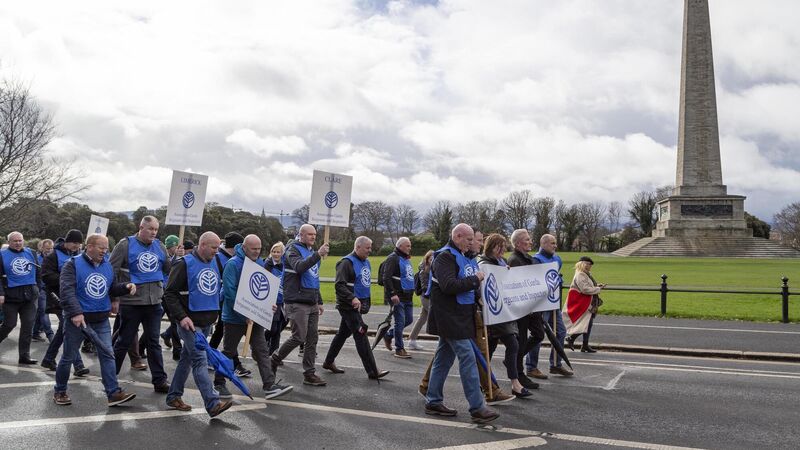'Morale is on the floor': 200 gardaí march over roster dispute

Members travelled from across the country to highlight their frustration at the extension of the covid-contingency roster. Picture: Collins
An estimated 180 members of the Association of Garda Sergeants and Inspectors (AGSI) marched to Garda Headquarters in Phoenix Park on Monday morning to deliver a letter outlining concerns over rosters.
Members travelled from nationwide to highlight their frustration at the extension of the covid-contingency roster which they say is having an impact on work-life balance, family-friendly working, and take-home pay.










